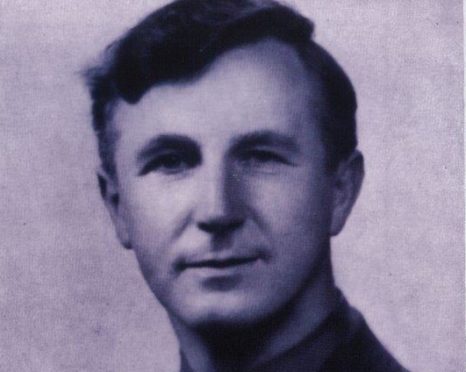
A Church of Scotland minister who helped prisoners of war escape a hilltop fort through a sewer system has been honoured in France.
A memorial plaque marking the work of Rev Dr Donald Caskie has been unveiled at Fort de la Revere near Nice.
He and his French Resistance colleagues masterminded the escape of RAF personnel under the noses of German soldiers and brought 36 of them back to Britain in a submarine.
Known as the Tartan Pimpernel, Dr Caskie, a crofter’s son from the Hebridean island of Islay, helped save more than 2,000 men during the Second World War.
The plaque at the former military fort was installed by the Le Devoir du Memoire organisation, which honours those affected by the war, including resistance fighters.
The minister’s nephew, Tom Caskie, attended the unveiling service along with around 100 people, including local dignitaries, and said he was “bursting with pride”.
He said: “The memorial is simply wonderful and it was very emotional to see Uncle Donald honoured in this way and seeing the Saltire on display.
“He was a hero of the Second World War and is still remembered with affection for his time as the minister of the Scots Kirk in Paris and the things he did with the Resistance to save thousands of lives.”
Mr Caskie and his brother, Gordon, were presented with a commemorative medal at the ceremony on October 19.
Le Devoir du Memoire secretary Nicole Pinon said: “These men were heroes of the shadows who did not seek reward and only thought about whether or not they had done their duty.
“Our goal is to never forget and we are extremely happy to be participating in this event.”
Dr Caskie, whose codename was Monsieur Le Canard – Donald Duck – was leading the Scots Kirk in 1940 when the Germans invaded Paris.
Refusing to return to Scotland, he fled to Marseille and ran a Seaman’s Mission, living a double life and passing the close scrutiny of the Vichy Police, helping British and Allied soldiers to freedom across mountains into Spain.
He was recruited by British Intelligence officers and the Seaman’s Mission became the last link of a chain of safe houses stretching from Dunkirk in northern France to Marseille in the south.
The story of how he helped liberate prisoners from Fort de la Revere in 1942 is outlined in his book, The Tartan Pimpernel.
Officially acting as a chaplain to the PoWs, he discovered a sewer behind a large bush near the fort and informed his Resistance contact.
The entrance to the sewer inside the fort was in the boiler house and within 90 minutes 36 men had escaped.
Dr Caskie wrote: “Another 22 men followed them, each ready to take his chance on making a solo getaway.
“Still more would have escaped but for a tragi-comic miscalculation involving a fat man – a squadron leader from the RAF who got stuck in the tunnel.
“The poor man struggled furiously to get through the aperture and succeeded only in becoming more tightly wedged.
“Fourteen of the solo escapees were recaptured, eight got clean away.
“Not one of the submarine passengers was lost, all returned to England to continue the fight.”
Dr Caskie was eventually jailed and sentenced to death but a German pastor intervened to save his life.
He spent the rest of the war in a PoW camp then returned to the Scots Kirk in Paris before heading home to Scotland in 1961.
He became minister of Old Gourock Church in Inverclyde and later Skelmorlie and Wemyss Bay North Church in Ayrshire, and died in 1983.

Enjoy the convenience of having The Sunday Post delivered as a digital ePaper straight to your smartphone, tablet or computer.
Subscribe for only £5.49 a month and enjoy all the benefits of the printed paper as a digital replica.
Subscribe